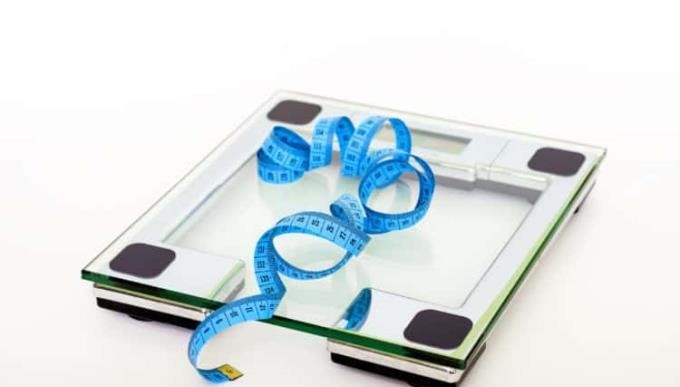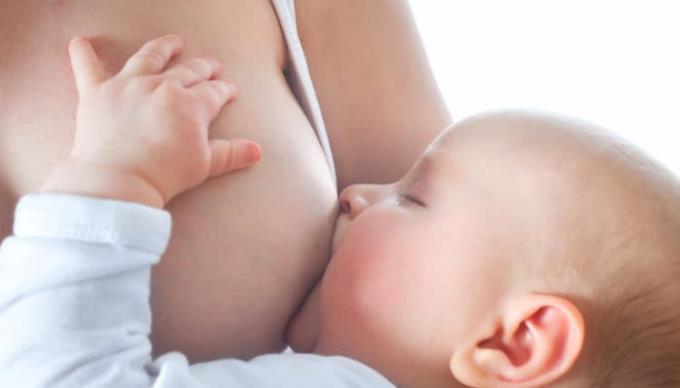Your body has changed a lot during the months of pregnancy. So the body changes after birth like? Let's find out.
When giving birth for the first time, pregnant women often have many questions about how their body is changing. Why do I have abdominal pain, pelvic pain? Urine incontinence. I hope I lose how many parasites after the parasite, because I gained too much weight during pregnancy. To answer all the questions about postpartum body change, see the following articles of aFamilyToday Health.
Uterus
For the hours after your baby is born, contractions cause your uterus to contract. The ligaments contract as well as contract during childbirth. These contractions cause the placenta to detach from the uterine wall.
After the placenta is removed, the uterus continues to contract, and the open blood vessels (where the placenta attaches while the placenta is in the womb) closes. As the uterus continues to contract, you may feel a cramping pain, like a cramp.
About 1-2 days after the baby is born, you should feel pain at the top of your uterus (1 to 2 inches below your navel). After about a week, the uterus weighs only about 0.5 kg, which is half its weight shortly after birth. Over the next two weeks, the uterus drops to about 300g and the contraction lies completely hidden inside the pelvis. After 4 weeks, the womb almost returns to its pre-pregnancy form, weighing about 100g or less. This process is called uterine contraction.
How much weight will lose after giving birth?

You will lose about 6kg, of which 3 - 4kg is the weight of the baby, the placenta is about 0.5kg, about 1-2 kg of blood and amniotic fluid are lost during birth. You cannot return to your pre-pregnancy weight immediately.
However, your weight will continue to decrease after giving birth as your body automatically removes the extra water stored in your cells. So, in the first few days of life, your body will excrete more urine than usual - perhaps almost 3 liters a day. You will also sweat a lot these days. By the end of the first week of life, you will usually lose between 2 and 3 kg of weight from the amount of excess fluid that is released (depending on the amount of fluid you store during pregnancy).
Why is your abdomen still like when you are pregnant?
Even though your uterus has shrunk to its normal size, it still looks like you're pregnant. This usually lasts a few weeks or months. This is because abdominal muscles stretch during pregnancy and it takes a while for your abs to return to its original shape. To get in shape, you should exercise regularly. Many people with breasts are as large as if they were pregnant forever without exercise.
How is urination affected?
The process of labor and delivery adversely affects the bladder, causing temporary swelling and decreased sensitivity. In the first few days after birth, you may not feel the urge to urinate, especially if you have just had a prolonged labor with forceps and vaginal interventions or have an epidural. It is also common if you have trouble urinating during delivery and have a catheter in place.
After birth, the kidneys produce more urine. As a result, the bladder will be filled quickly and continuously. You may need to urinate often, even if you don't feel the urge to urinate if you don't want to be in an awkward urge to urinate. Not only that, an over-stretched bladder can cause urethral problems and also cause the uterus to contract with difficulty, leading to postpartum abdominal pain and vaginal bleeding.
If you are unable to urinate within a few hours of giving birth, your healthcare provider will use a urine catheter that is inserted to help the urine drain. If you have a cesarean section, you will have a catheter inserted during the surgery and maintained for a short time after your birth. Tell the nurse if you have difficulty urinating or are only able to urinate a little. If the bladder is too tight, it also interferes with urination.
When will the vagina and epithelium return to normal?
If you have a normal birth, your vagina will be slightly wider than before. Immediately after birth, the vagina remains dilated, possibly even swelling and bruising. Over the next few days, the swelling will subside and the vagina starts to regain its firmness. Try to do some pelvic floor exercises like Kegel on a regular basis so that your vagina will shrink.
If you have a minor episiotomy during birth, you don't need stitches, it will heal quickly and cause some discomfort. If you have an episiotomy or a large cut, your epis will take time to heal. So wait until your postpartum check-up doctor gives you the permission before you can have sex again. If you still feel uncomfortable in your genitals, wait until you are really ready to have sex. In the meantime, take the time to learn about contraception for postpartum mothers.
When you start having sex again, you may find that your vaginal discharge is less fluid than before, due to a drop in estrogen levels. This is even more evident when you breastfeed, as it tends to lower estrogen levels. At this point, the most effective solution is to use artificial lubricants, choose water-based lubricants, especially if you are using a shielded form of contraception such as a condom. Oil-based lubricants can weaken the structure of a condom, causing it to tear or damage.
Translation
Caesarean deliveries can often, you will still have a flow of blood from the vagina in 1-2 months after birth, is called the translation . Fluid consists of blood, bacteria and placenta that shed from the lining of the uterus. In the early days, the discharge is usually bright red, menstrual-like, and later brown or pink. After that, the volume of fluid will be less and completely gone in the next 3-4 weeks.
Breastfeed your baby

During the first feedings, you can feel the contractions that are painful and uncomfortable. However, do not worry too much because these contractions are only mild and during breastfeeding caused by the uterine-stimulating hormone oxytocin. During the 2nd - 3rd day of life, when your breasts start to produce milk, you should feel the breasts feel heavy, hot and hard. This is called a engorged breast and usually lasts 24 to 48 hours.
Breastfeeding is the best way to deal with this. In addition, early breastfeeding also helps prevent blockages. If you still do not get better after a few days, see your doctor for check.
Where not to breastfeed because of serious illness
Whether or not you breastfeed your baby, milk will be produced within a few days of birth. This will cause discomfort and peak pain usually about 3-5 days after giving birth. It may take several weeks for the milk to completely stop producing.
To reduce discomfort, choose comfortable bras, designed for postpartum women, apply ice to your breasts to reduce swelling and inhibit milk production. Alternatively, you can also take acetaminophen or ibuprofen for pain relief. If you feel too uncomfortable, express milk. However, don't do this too many times as it will be a sign for the body to continue producing milk.
Hair loss
Many women can experience hair loss after giving birth . Do not worry, this is completely normal and most mothers have this condition. During pregnancy, elevated levels of estrogen cause hair to look shiny, but after birth, lower estrogen levels lead to hair loss. Within a year, the hair problem should improve.
Skin changes
Hormonal changes, stress and fatigue are all causing problems after giving birth. Women with smooth, smooth skin during pregnancy usually get acne after giving birth. On the contrary, if you get acne during pregnancy, it will improve after the baby is born.
If you have chloasma or have a sugar in the abdomen, then after birth, they will begin to fade and completely disappear provided you take care of them carefully, do not expose too much to the sun. Stretch marks also begin to fade, though they don't completely disappear.













